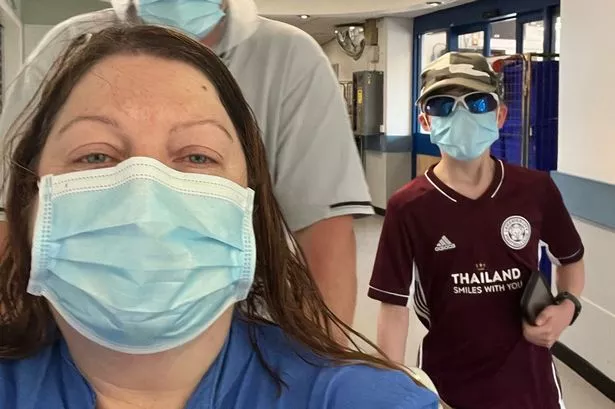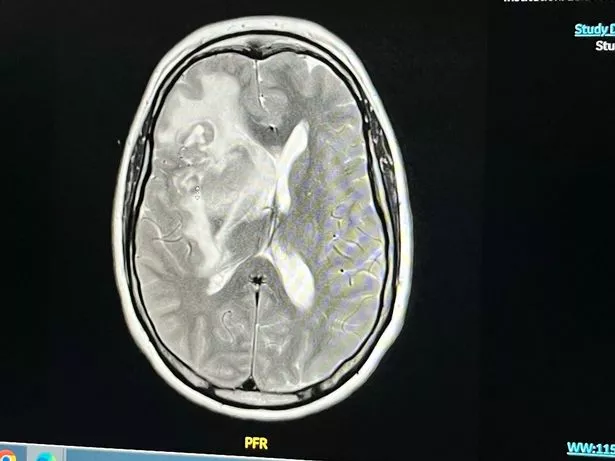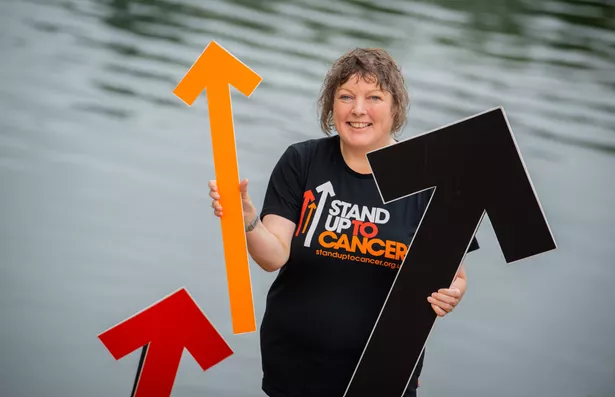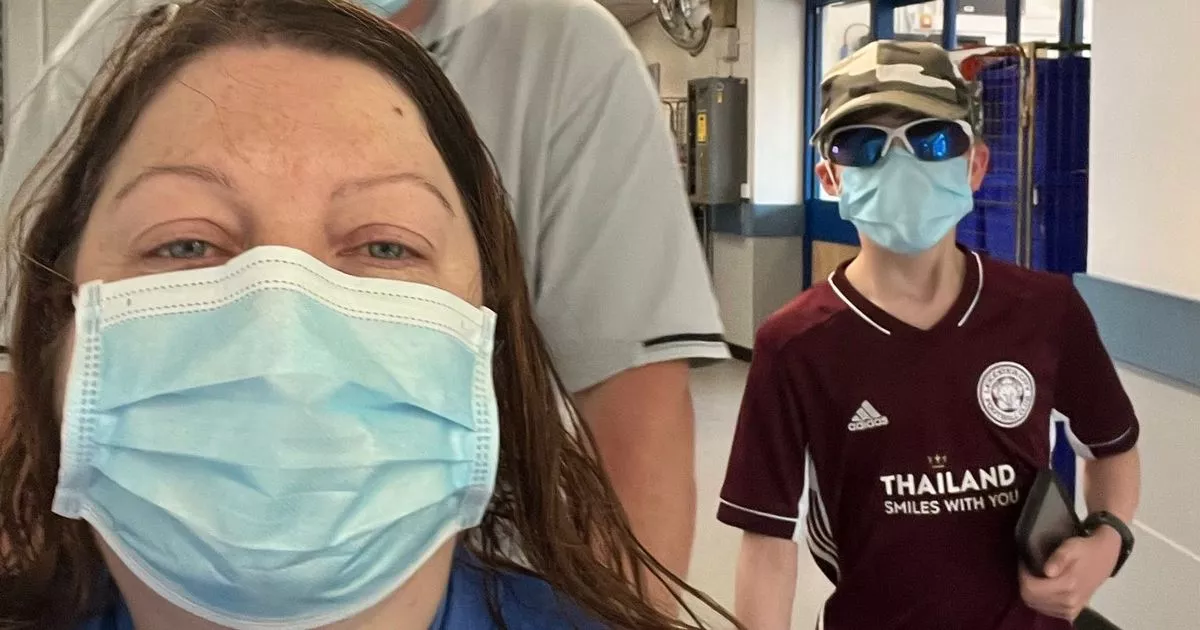Caroline Palmer feared she’d never see her 10-year-old son grow up Caroline Palmer feared she’d never see her 10-year-old son grow up (Image: Supplied)
Caroline Palmer feared she’d never see her 10-year-old son grow up (Image: Supplied)
A Leicestershire mum who put months of headaches and fatigue down to the perimenopause was given the devastating news that she had a rare form of brain cancer. Caroline Palmer, 50, was diagnosed with primary central nervous system lymphoma (PCNSL) – a type of blood cancer affecting the spinal cord and brain.
The teacher had been experiencing unusual flashing lights in her eyes, worsening headaches and exhaustion while doing simple tasks when she visited her optician in February 2023. He noticed she’d had a bleed behind her eye, and after referrals to Coalville Community Hospital and Leicester Royal Infirmary for an MRI scan, Caroline was told she had a lesion on her brain and needed to see a neurologist at Queen’s Medical Centre in Nottingham.
Following a brain biopsy, Caroline was given the life-changing diagnosis and faced telling her 10-year-old son the news. Even after hearing she had cancer, she initially tried to minimise it, telling herself it couldn’t be that bad. But she was then told she had PCNSL, a very aggressive type of cancer that affects the brain and spinal cord, and that she would be spending a long time in hospital.
 Caroline Palmer’s brain scan(Image: Supplied)
Caroline Palmer’s brain scan(Image: Supplied)
Her first thought when she was diagnosed had been for her young son. She said: “We’d waited a long time to become parents and I just thought, ‘I can’t die, I need to be here for him’. I needed to tell my son before he heard it from anyone else, so I was allowed home for a night to break the news as simply as I could.
” I treated him to a McDonald’s and gently explained that I had something that was very hard to get rid of and that it could only be treated in hospital.” She didn’t see him for 40 days during treatment to reduce her risk of infection.
Caroline was offered the chance to become the first patient on the OptiMATe clinical trial, funded by Stand Up To Cancer with £1 million. Around 30 to 50 per cent of patients who are offered the standard treatment for PCNSL don’t survive, but the trial aimed to give patients a higher chance of remission with fewer side effects.
She went through three cycles of treatment followed by a stem cell transplant, describing the recovery from July to December as challenging. She said: “I was sick every day and lost a lot of weight. I had to take everything one day at a time, but when I finally heard the words that I was in remission, the difficult days no longer mattered.” After her first treatment cycle, scans showed the tumour had shrunk significantly.
The OptiMATe trial is an international collaboration led by Professor Chris Fox in Nottingham and run by the Cancer Research UK Southampton Clinical Trials Unit.
Professor Fox, consultant haematologist at Nottingham University Hospitals NHS Trust and the trial’s chief investigator, said: “The aim of the OptiMATe trial is to optimise a treatment regimen used on a previous trial to help more people with PCSNL experience long-term remission and survival.
 Caroline’s now calling on people across Leicestershire to flex their fundraising muscles to help power more progress(Image: Supplied)
Caroline’s now calling on people across Leicestershire to flex their fundraising muscles to help power more progress(Image: Supplied)
“It can be difficult to believe that giving less treatment could actually lead to better outcomes, but this trial is very much about improving ways of delivering effective treatments, so they reduce the risks while helping more patients to complete the treatment course. We hope this may lead to a greater chance of long-term remission and survival.”
Now in remission, Caroline is slowly returning to work as a teacher and caring for her brother, who has early-onset dementia. She said: “I’m slowly returning to work as a teacher, helping to care for my brother, and I am feeling grateful every day that I’m alive. I’m still on the road to recovery but am now really enjoying lots of glimpses of normality.”
She is taking part in Stand Up To Cancer’s Sweat Every Day in November Challenge to help raise funds for improved treatments, saying: “When you fundraise and save a life, you do much more than save that person. Cancer affects the patient, their loved ones and in my case, the children I’ve been teaching for over 20 years.”
Cancer Research UK spokesperson for the Midlands Paula Young said: “Thanks to our supporters, our scientists are trailblazing new and better ways to help more people like Caroline survive. From using AI to optimise radiotherapy treatment for rectal cancer to creating lollipops that could detect mouth cancer, we’re at the cutting edge of research.”
Since its launch in the UK in 2012, Stand Up To Cancer has raised more than £113 million, funding 73 clinical trials and research projects involving more than 13,000 cancer patients. Around 557,000 new cancer cases are expected in the East Midlands over the next 15 years, with projections showing that by 2040, one person in the UK will be diagnosed with cancer every two minutes.
If you, or someone you know, has been affected by cancer, you can speak to the Macmillan Support Line for free on 0808 808 0000 or Cancer Research on 0808 800 4040.

